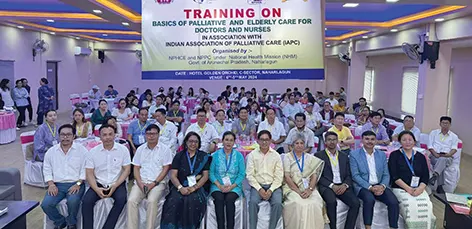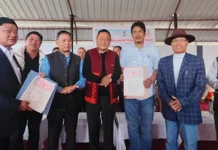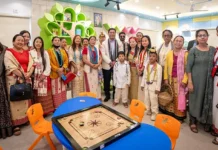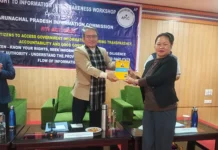NAHARLAGUN, 6 May: District nodal officers, medical practitioners, nursing staffers, and programme coordinators from all districts of Arunachal Pradesh are participating in a four-day certificate training programme on the foundational aspects of palliative and geriatric care,
which got underway at a city hotel here on Tuesday.
“The programme is being organised by the state government, in partnership with the state unit of the Indian Association of Palliative Care (IAPC), through the National Programme for Health Care of the Elderly (NPHCE) and the National Programme for Palliative Care (NPPC) under the National Health Mission (NHM), in partnership with the Indian Association of Palliative Care (IAPC),” the Health Services Directorate informed in a release.
Palliative care is a specialised medical discipline that focuses on relieving symptoms, including pain and emotional distress associated with life-limiting illnesses such as cancer. The NPPC is committed to expanding access to such essential services across the state. Meanwhile, the NPHCE seeks to ensure healthy, dignified, and productive ageing for all individuals aged 60 and above.
In alignment with these objectives, the NPPC and the NPHCE have collaborated with the IAPC – known for empowering professionals and institutions nationwide – to facilitate the training initiative.
Addressing the inaugural function, IAPC president Dr Geeta Joshi expressed gratitude to the National Health Mission (NHM), Government of Arunachal Pradesh. This was followed by an address by state NHM Mission Director Marge Sora, who underscored the significance of elderly and palliative care in today’s society.
NPHCE state nodal officer Dr Dukam Taipodiaunveiled a promotional video on elderly healthcare under the NPHCE, and highlighted the vital role of comprehensive primary healthcare within the NPCC and the NPHCE frameworks.
Over the course of the workshop, the participants will receive training on a range of essential topics,including pain and symptom management, wound care, respiratory distress relief, handling emergencies, end-of-life care, home-based care strategies, and effective communication with patients facing terminal conditions such as advanced cancer and heart failure.
The curriculum will also address holistic elderly care, encompassing the management of common geriatric health issues, psychosocial wellbeing, medical ethics, and the prevention of elder abuse.
“This initiative represents a significant stride in enhancing the state’s capacity to deliver compassionate, evidence-based care to both elderly individuals and those facing life-threatening illnesses,” the release stated.





